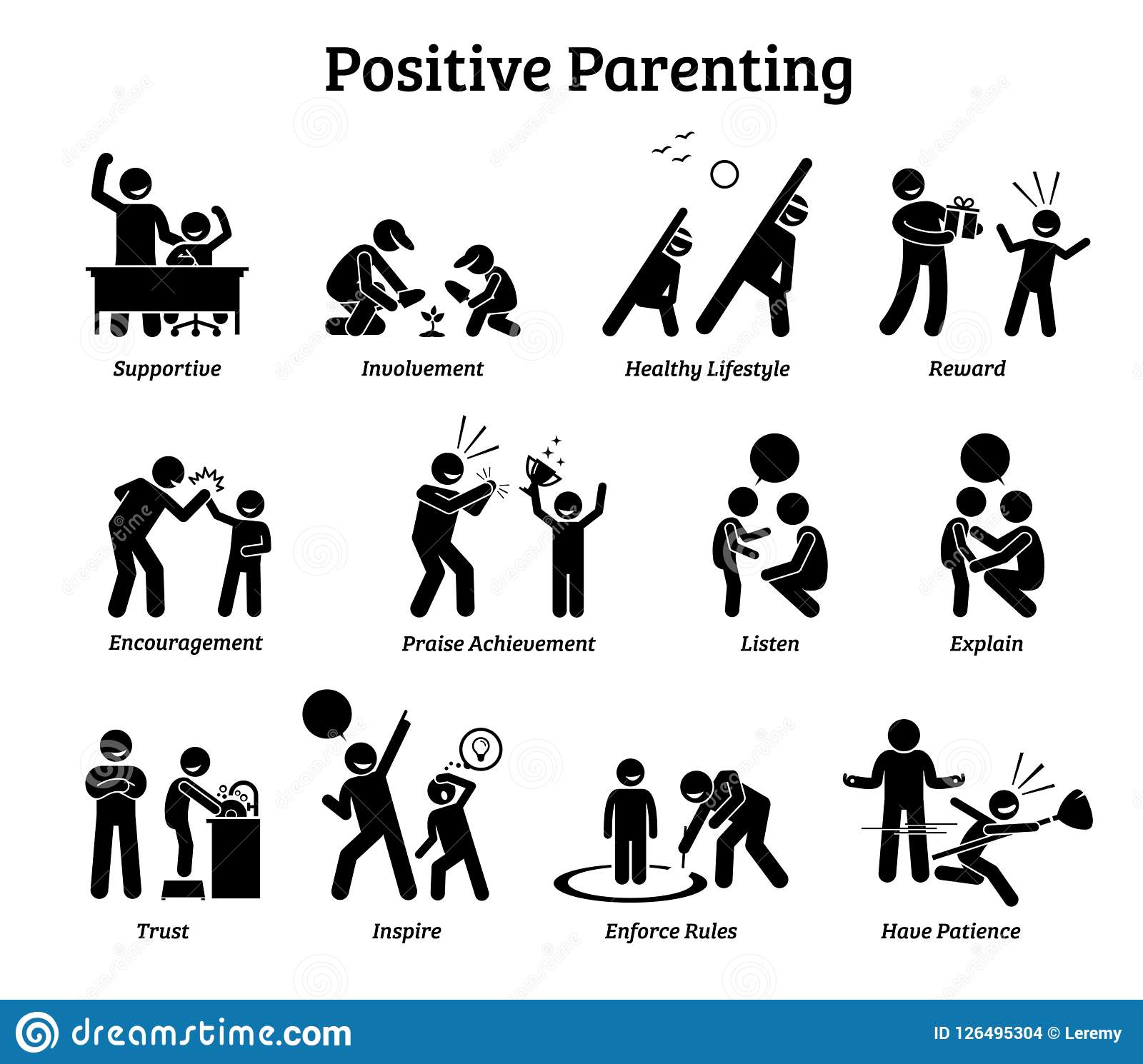Definition
Parenting, the process of raising children and providing them with protection and care in order to ensure their healthy development into adulthood.
Significance
The long-standing assumption that parents assert a direct and powerful influence on their children through the process of socialization has permeated research and theory on human development as well as most cultural belief systems. If children turn out well, it is to the parents’ credit; if they turn out badly, it is the parents’ fault.
This assumption has been challenged by researchers who highlight the role of biological influences on children’s development. Behavioral genetic studies, for example, show that adopted children are more like their biological parents than their adoptive parents in basic characteristics such as personality, intelligence, and mental health. Additionally, some scholars have criticized the emphasis on parenting by asserting that other factors, such as peer relationships, exert a strong influence on development.
Researchers who study the significance of parenting emphasize several issues. First, in biologically related families, genetic and socialization influences are difficult to separate. For example, a child who is musically talented may have inherited that tendency from parents who are also musically gifted. Those same parents would be likely to emphasize music at home, which makes it difficult to determine whether the musical child is a product of genetics, the environment, or (most likely) both working together. If instead that child was adopted and is being raised by parents who are not musically inclined, the expression of that talent might take a different form or might be actively suppressed. Thus, genetic predispositions (strengths and vulnerabilities) are often modified through experiences created by parents.
Second, the stream of influence between parents and children is bidirectional rather than unidirectional (e.g., from parent to child). A parent who is impatient may cause an infant to react with distress, but an infant who is constitutionally prone to distress may elicit impatience from the parent. Regardless of who has initiated the chain of events, parents and children often become locked into escalating cycles of action and reaction, in this case distress and impatience. Nonetheless, because parents are more mature and experienced than children, they play a stronger role in establishing the initial interaction patterns and can more effectively induce change by altering their responses (e.g., responding with patience to the distressed infant).
Finally, parents play a significant role in shaping children’s environments and thus children’s exposure to other factors that influence development, such as peer relationships. For example, parents are much more likely than children to make decisions about the neighbourhood in which the family resides, the schools that children attend, and many of the activities in which children engage; in these ways parents expose children to certain peers and not others. Additionally, children are more likely to select friends who have similar interests and values, which are rooted primarily in early family experiences. Even broad contextual factors, such as poverty and culture, are mediated by parents, who, in American psychologist Marc Bornstein’s words, are the “final common pathway to children’s development and stature, adjustment and success.”
Parenting and child development
The developmental tasks most important to children change as they mature. For example, an important developmental issue for an infant is attachment, whereas a salient task for a toddler is individuation.
Parenting is at its greatest level of intensity during infancy and toddlerhood. In the first few years of life, children depend entirely on their caregivers, who determine most of the children’s experiences. Caregivers decide, for example, whether an infant is held, talked to, or ignored and in what kinds of activities the toddler will engage. Because of the enormous flexibility of the human nervous system during the early years, this period offers unparalleled opportunities for learning and development, which are best supported by an enriched but not pressured environment. Further, although some theorists argue that later experiences can completely alter children’s developmental pathways, many assert that the experiences over the first few years of life lay the foundation on which the rest of development builds. Like compounding interest, the investment that warm, engaged, and sensitive caregivers make during the early years pays huge dividends toward a secure, self-confident child.

In the first few months of life, parenting focuses on the provision of basic care, ideally from a warm and responsive caregiver. The caregiver’s sensitivity to the child’s cues helps the child learn basic regulation and predicts the security of the child’s attachment to the caregiver, which becomes organized toward the end of the first year. In the second year of life, the utterly dependent infant becomes the passionately autonomous toddler, inviting increasing opportunities for discipline. Early and middle childhood bring new challenges as children move farther out into the world. School adjustment and peer relationships become central, and here too children benefit from par



ents who are involved and support.
Hello @rodiat. I see you're new on the platform and although you got some nice comments and recommendations and guidance on you first post, you have not replied to anyone. Replying to comments is a way of appreciation towards those who took the time to read your post and leave you a welcoming comment.
Also I'd like to remind you again, of the niche communities we have on Hive. This topic for example would fit perfectly in HiveParents community.
Here's the list of communities on Hive, to help you choose the one that fits your topic.
https://peakd.com/communities
OCD community is for topics that don't fit in any other community.
Source of potential plagiarism
Plagiarism is the copying & pasting of others' work without giving credit to the original author or artist. Plagiarized posts are considered fraud.
Guide: Why and How People Abuse and Plagiarise
Fraud is discouraged by the community and may result in the account being Blacklisted.
If you believe this comment is in error, please contact us in #appeals in Discord.
Congratulations @rodiat! You have completed the following achievement on the Hive blockchain and have been rewarded with new badge(s):
Your next target is to reach 50 replies.
You can view your badges on your board and compare yourself to others in the Ranking
If you no longer want to receive notifications, reply to this comment with the word
STOPCheck out the last post from @hivebuzz:
Support the HiveBuzz project. Vote for our proposal!